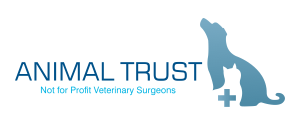
Animal Trust Announces New CIC Business Status
Pet owners are increasingly faced with a dilemma when considering how, or if, to treat a sick animal. As more and more independent vet practices are being acquired by corporates and private equity companies – as detailed in recent articles in The Times, The Guardian and The Daily Mail – vet costs are becoming increasingly unaffordable for a large number of people.
But there are still alternatives.
Animal Trust, with nine surgeries based across Yorkshire, Greater Manchester, Cheshire and North Wales, does not charge consultation fees – which means that your pet can be seen initially free of charge, and if it turns out there’s nothing wrong, then there’s nothing to pay. If treatment or medicine is required, all prices are published on the website, so clients can see at a glance what everything costs.
Founder Owen Monie says: “We are here to provide a comprehensive vet service for people who earn a real, living wage. We want to deliver the best access to good vet care and to remove the barriers that stop people getting care for their animals – that’s why we provide free consultations. This means pet owners can get professional advice without worrying about having to pay a consultation fee. If no treatment is needed – there’s no fee. It’s as simple as that.”
Animal Trust, founded in 2012, changed its status 18 months ago to become a community interest company (CIC) – the only vet practice in the UK to have this status to date.
What that means for clients and their pets is that the assets remain within the organisation and there are limits on the profits that can be distributed. A CIC is different from a charity in that a CIC is expected to make a profit/surplus, whereas a charity is considered as a not-for-profit, which should not profit from the work it carries out. Furthermore, CICs are expected to reinvest their surpluses to do more of their work, but can also pay a limited proportion of this out to the owners or investors. CICs are regulated by the Office of the Regulator of Community Interest Companies.
Organisations like Animal Trust help to bridge the gap between charities, who provide help for those who are eligible, and commercial practice, which increasingly are only accessible to those who have insurance or the means to pay for treatment. Demand for services from animal charities such as Blue Cross and PDSA has increased dramatically since the pandemic started. The RSPCA can also offer limited help, although it is predominantly for animals that have been rescued and require urgent help.
Historically, vets have been small, locally owned businesses, but the rules were changed in 1999 to allow non-vets to own UK practices - and investors were quick to cash in on a booming industry. And in theory, it’s not all bad – large corporations argue they can bring better management, efficiency and innovation to the sector – and claim that costs have gone up in part due to advances in animal medicine and clients’ expectations.
That may well be true, but big isn’t always better. In addition to its legal status as a CIC, Animal Trust lives by a set of core values (straightforward, accessible, sustainable and fair) that are becoming increasingly meaningful to customers and clients as an alternative to companies who appear to be only interested in the bottom line. There isn’t an NHS equivalent for animals – so is becoming a CIC the model that all vet practices should be looking to adopt?
More from Animal Trust

 5 years ago
5 years ago  2517 views
2517 views
 1 week ago
1 week ago 